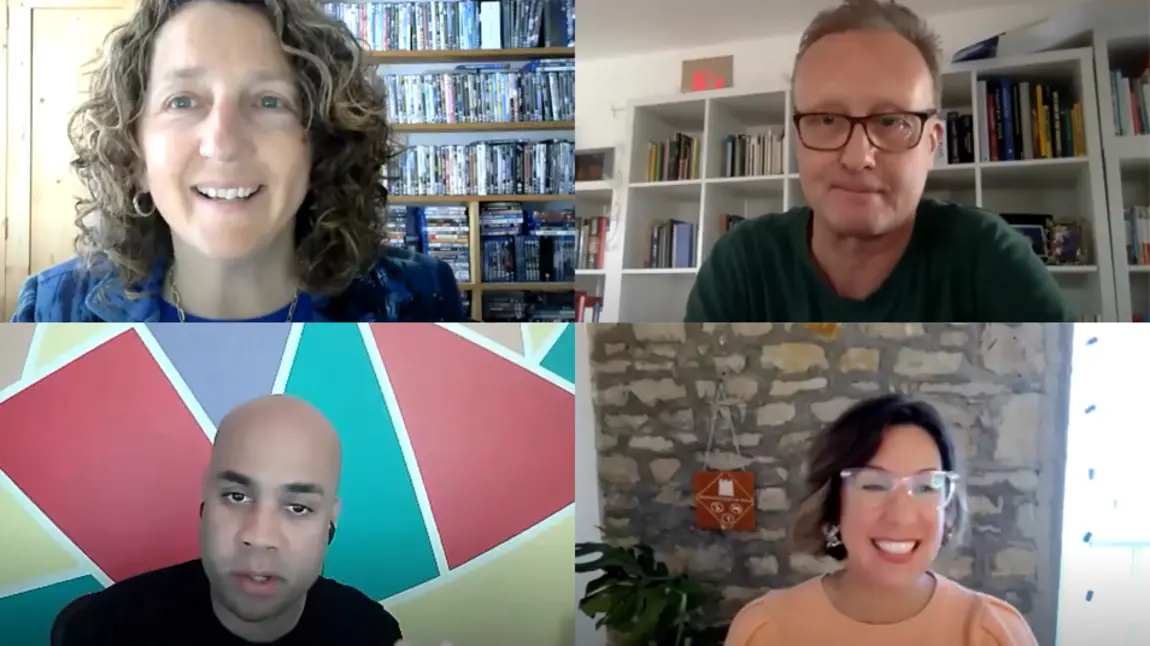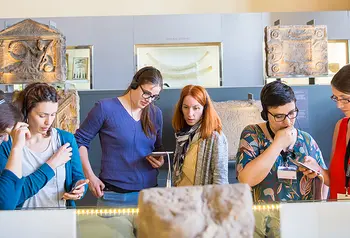Top tips for hybrid working in the heritage sector

The coronavirus (COVID-19) pandemic has driven many heritage organisations to take the leap into hybrid working. This is where staff and volunteers split their time between working in an office and other locations such as their home.
In March, senior heritage professionals took part in the first webinar from the Leading the Sector programme, which looked at best practice for hybrid working and how to adapt to this new way of working.
I think the pandemic has really forced experiments on us all that has smashed this idea of what work is, what the office is, what the culture should be like.
Zak Mensah, Co-Chief Executive Officer at Birmingham Museums Trust
Leading the Sector is run by Culture24 and supported by the Heritage Fund's Digital Skills initiative.
The three speakers were:
- Zak Mensah, Co-Chief Executive Officer at Birmingham Museums Trust (lead speaker)
- Lisa Westcott Wilkins, Managing Director at DigVentures
- Mark Bishop, Director of Customer & Cause at the National Trust for Scotland
We've rounded up highlights from the chat to help you experiment with hybrid working in your organisation.
Keep a focus on working culture and mental health
- focus on supporting the mental health and wellbeing of people
- ensure a good work/life balance
- as an example – record virtual meetings so those who couldn’t attend can watch to help them feel less isolated and more connected to the team
Design social contracts
- a social contract is an agreement between you and your colleagues on how and when to check in with each other
- it can be formal or informal
- it supports people's mental health and can help create a safe space for them
Build prep time for hybrid meetings
- it can take up to three times as long to organise a hybrid meeting
- prepare how the hybrid meeting will work, such as checking the equipment ready
- make sure those who take part remotely have the same opportunities to contribute as those in the room
Have a hybrid working guide
- include guidance on what hybrid working is, which roles are eligible, what the different rules are for home and office working
- make sure everyone is involved in creating the guidance
- try to be flexible
Giving flexibility to someone gives them trust
- hybrid working opens up opportunities for flexibility
- it shows staff that you trust them, which is key to working remotely
Challenges and how to overcome them
Home might not be a safe place for everyone
- arrange regular check-ins, whether digitally or in person
- allow people to work from the office when they not only need to, but want to
- create social contracts
Some roles are more hybrid than others which may cause some resentment
- try to give flexibility to everyone in the organisation
- ask everyone what other benefits they could use instead of working from home
- have clear guidance on the different roles within the organisation
Take part in the next free seminar
Watch the panel answer questions and discuss hybrid working further in the video above.
Find out what's coming up in the Leading the Sector programme.
Find out more
Leading the Sector is part of our £3.5million Digital Skills for Heritage initiative, designed to raise digital skills and confidence across the whole UK heritage sector.
To stay up-to-date about these and other projects and opportunities:
- sign up to our newsletter and select the ‘digital’ preference
- visit our Digital Skills for Heritage page





